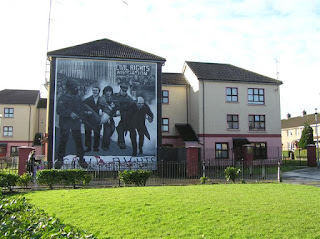A chapter has closed in a strange story
on the fringes of the Mumbai terrorist attacks of 1993 which left 257 people
dead. The Bollywood star, Sanjay Dutt, aged 56, has been released from prison
after serving 5 years for buying guns from the terrorists.
Dutt’s defence was that he had needed
the weapons to protect his family during riots in which Muslims fought Hindus.
The son of a Hindu father and a
Muslim mother, he was one of India’s most popular stars, specialising in
tough anti-hero roles. Sentencing him at his trial, the judge said: ‘Don’t get
perturbed. You have many years to go and work like the Mackenna’s Gold actor Gregory Peck.’
A hundred people were convicted for
their role in the bombings, with 12 given the death penalty and 20 others
sentenced to life imprisonment. For
more, see A Disastrous History of the
World.




